The Postwar Vision That Sees Gaza Sliced Into Security Zones
As Israel prepares to wind down major military operations in Gaza, one question looms large: What happens next?
A plan that is gaining currency in the government and military envisions creating geographical “islands” or “bubbles” where Palestinians who are unconnected to Hamas can live in temporary shelter while the Israeli military mops up remaining insurgents.
Other members of Prime Minister Benjamin Netanyahu’s Likud party are backing another, security-focused plan that seeks to slice up Gaza with two corridors running across its width and a fortified perimeter that would allow Israel’s military to mount raids when it deems them necessary.
The ideas come from informal groups of retired army and intelligence officers, think tanks, academics and politicians, as well as internal discussions inside the military. While Israel’s political leadership has said almost nothing about how the Gaza Strip will look and be governed after the heaviest fighting ends, these groups have been working on detailed plans that offer a glimpse of how Israel is thinking about what it calls the Day After.
The plans—whether or not they get adopted in full—reveal hard realities about the aftermath that rarely get voiced. Among them, that Palestinian civilians could be confined indefinitely to smaller areas of the Gaza Strip while fighting continues outside, and that Israel’s army could be forced to remain deeply involved in the enclave for years until Hamas is marginalized.
The need to settle on an answer is growing more urgent, as Israel is expected to shift soon to a counterinsurgency phase of fighting that will reduce troops in Gaza and could leave the enclave mired in lawlessness and violent instability if no alternative is found. Adding to the pressure, fighting with Hezbollah on Israel’s border with Lebanon threatens to escalate.
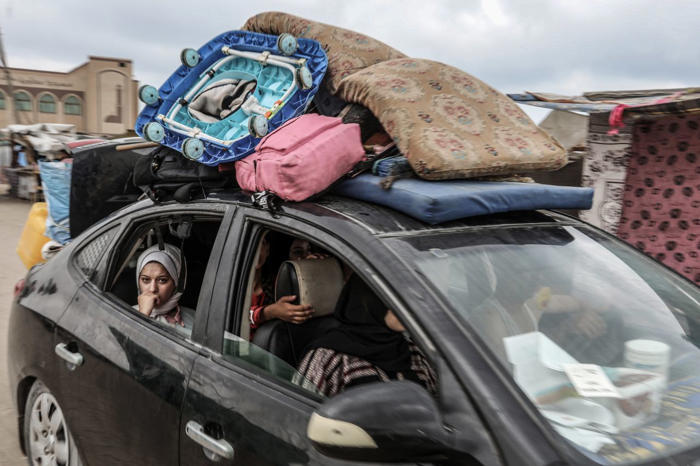
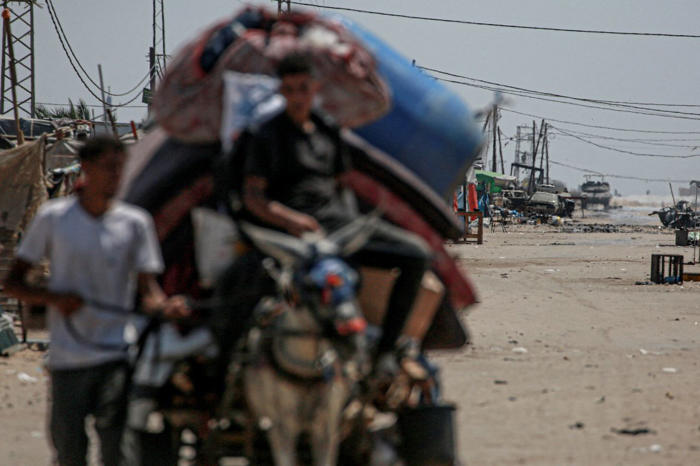
“Decisions have to be taken today,” said Israel Ziv, a former Israeli general who helped provide ideas for a plan for Hamas-free humanitarian bubbles in Gaza.
Netanyahu, in rare comments addressing the issue last week, said the government would soon begin a phased plan to establish a civil administration run by local Palestinians in areas of the north—ultimately, he said he hopes, with security help from Arab states.
He didn’t explain how any plan would be structured or implemented, and some analysts cautioned against assuming that something concrete was close to fruition. Netanyahu’s office declined to comment on postwar planning.
Current and former Israeli officials said Netanyahu was likely referring to the “bubbles plan” discussed among government decision makers.
According to people familiar with the effort, it aims to work with local Palestinians who are unaffiliated with Hamas to set up isolated zones in northern Gaza. Palestinians in areas where Israel believes Hamas no longer holds sway would distribute aid and take on civic duties. Eventually, a coalition of U.S. and Arab states would manage the process, these people said.
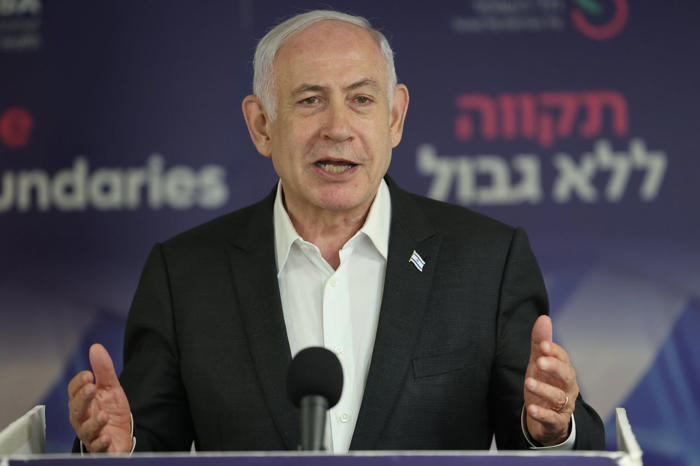
The Israeli military would continue to battle Hamas outside the bubbles and set up more over time as areas of Gaza are cleared.
Ziv, who oversaw Israel’s exit from Gaza in 2005, proposes that Palestinians who are ready to denounce Hamas could register to live in fenced-off geographic islands located next to their neighborhoods and guarded by the Israeli military. This would entitle them to reconstruction of their homes.
The process would be gradual, and in the longer term, Ziv envisages bringing the West Bank-based Palestinian Authority back to Gaza as a political solution, with the whole process taking roughly five years as the military fights Hamas insurgents. Under his plan, Hamas could be part of Gaza’s administration, if it frees all the hostages held there and disarms, becoming purely a political movement.
It is a plan fraught with challenges, and a similar approach has failed before. Earlier this year, the Israeli military quietly attempted to work with local Gaza families to distribute aid and replace Hamas, but they were scared off by the militant group’s threats of violence. Netanyahu has said some Gaza Palestinians involved in the earlier plan were killed by Hamas.
Hamas vowed this week to resist Israel’s plans and to “sever any hand of the occupation attempting to tamper with the destiny and future of our people.”
Palestinians are reluctant to facilitate Israeli control of Gaza after its air-and-ground campaign, which Gaza health authorities say has left more than 37,000 people dead, a majority of them civilians.
Arab governments have expressed a willingness to play a greater role, with some offering funding and soldiers to manage security. But they have conditioned that support on a broader political track that includes a return to Gaza of the Palestinian Authority and a commitment by Israel to a two-state solution, outcomes the U.S. also seeks.
Netanyahu has refused to consider either of those demands, arguing the Palestinian Authority is too weak and supportive of terrorism. He also faces internal political pressures. Members of the right wing of his narrow governing coalition oppose a Palestinian state, and some even want Gaza to be resettled by Israelis, limiting his ability to address the issue.
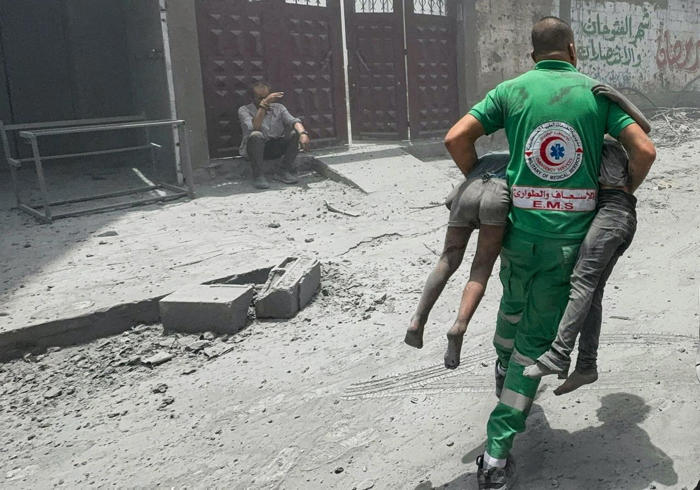
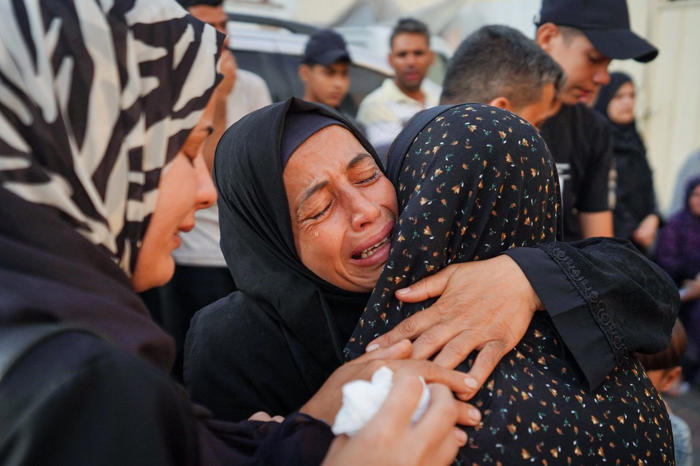
“Because the Israeli government continues to refuse or to reject the only viable path forward,” said Hugh Lovatt at the European Council on Foreign Relations, “it will be left with the worst outcome from its perspective, which will be continued open-ended conflict and reoccupation of Gaza.”
Some Israeli think tanks, recognizing that encouraging Arab participation in administering Gaza will be difficult, are pushing for an outright Israeli occupation.
The Misgav Institute for National Security and Zionist Strategy, a right-wing think tank headed by former head of national security Meir Ben-Shabbat, argues that the Israeli military needs to ensure about 75% of the Hamas and Islamic Jihad fighters in Gaza are no longer capable of fighting before another security force can capably take over the strip. The military estimates it has killed about half the Hamas fighters it believes were operating in Gaza at the start of the war.
“There may be a period of a year or five years, or more or less, where we need some kind of military administration,” Asher Fredman of Misgav said.
Misgav says its thinking helped inform a plan put forward by members of Netanyahu’s Likud party earlier this year, which included the creation of a security perimeter around Gaza and two Israeli corridors cutting across its width.
Northern Gaza, under the plan, would remain without reconstruction, and Palestinians there wouldn’t be allowed back to their homes until Hamas’s miles-long tunnel network was destroyed. Like the bubbles plan, it promotes the notion of de-escalation zones where aid can be delivered by the Israeli military or by international forces, but stops short of articulating an idea for governance.
Amichai Chikli, a Likud minister who formulated the plan, personally presented it to the prime minister, according to Chikli’s office.
Another plan, developed by a nonprofit led by a former head of Israeli military intelligence, argues that the Oct. 7 attacks and the subsequent war mean Israelis and Palestinians can no longer engage with each other in good faith. It advocates working with the U.S. and Arab governments to create a new Palestinian governing body that would work to stop terrorism against Israel.
To thread the needle between Arab reluctance to engage in Gaza without commitments toward a two-state solution and Netanyahu’s refusal to address the matter, the proposal says discussions about the establishment of a Palestinian state should start five years after the war. Hamas’s Oct. 7 attacks, in which Israeli authorities say militants killed about 1,200 people, mainly civilians, and took approximately 250 hostages, shouldn’t be rewarded with the establishment of a state now, the proposal says.

“We need to build something new, and in order to build it we need a coalition,” said Avner Golov, of Mind Israel, the nonprofit that helped provide ideas for the plan.
Another plan published by the Washington-based Wilson Center also advocates a coalition-style approach to the conflict but refrains from calling for Israel to consider the adoption of a Palestinian state. It says the U.S. should establish an international police force to manage security in Gaza and over time hand the job to a yet-to-be-defined Palestinian administration.
Robert Silverman, a former U.S. diplomat in Iraq who is a co-author, said his team discussed the plan with Israeli officials for months, even changing parts of the proposal to make it more agreeable to Israel’s war objectives and political dynamics, but it stalled with the prime minister’s office.
“He believes we finish the war first and then plan the postwar,” Silverman said of Netanyahu. “All the people who have done this before say that’s a huge mistake.”
Another document, drafted by Israeli academics, that has made its way to the prime minister’s desk draws on historical precedents in rebuilding the war zones in Germany and Japan after World War II, and more recently in Iraq and Afghanistan. It considers how to tackle Hamas’s Islamist doctrine by learning from the defeat of ideologies such as Nazism and that of Islamic State.
The 28-page document viewed by The Wall Street Journal acknowledges that the process of deradicalizing education and identifying new leadership will be long and complicated and should start as soon as possible, especially in light of the humanitarian situation in Gaza.
All of the floated plans assume that Israel will eventually leave Hamas politically and militarily defunct. That’s a blind spot, say Israeli critics of their government’s current policy.
The militant group has its own plans for postwar Gaza, aiming to at least retain security control over the strip and remain a force in Palestinian politics. The group’s organized battalions have been crushed, but its remaining capabilities still leave it the most powerful Palestinian force in the Gaza Strip, and it isn’t content to be sidelined.
“Hamas is already working on their own Day After plan,” said Ehud Yaari, a fellow with the Washington Institute for Near East Policy.
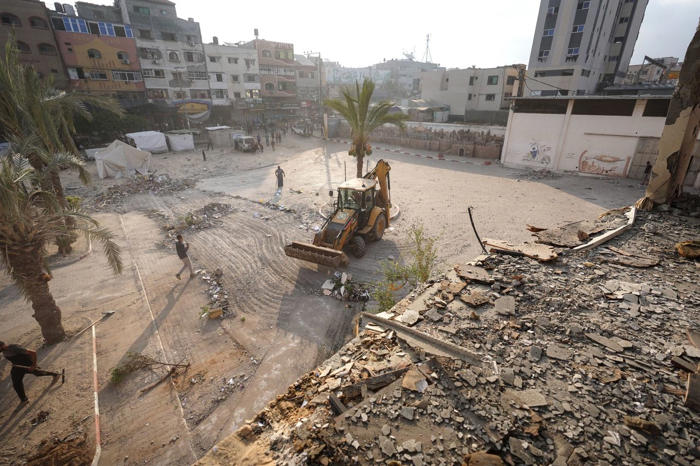
Write to Rory Jones at [email protected], Anat Peled at [email protected] and Dov Lieber at [email protected]
